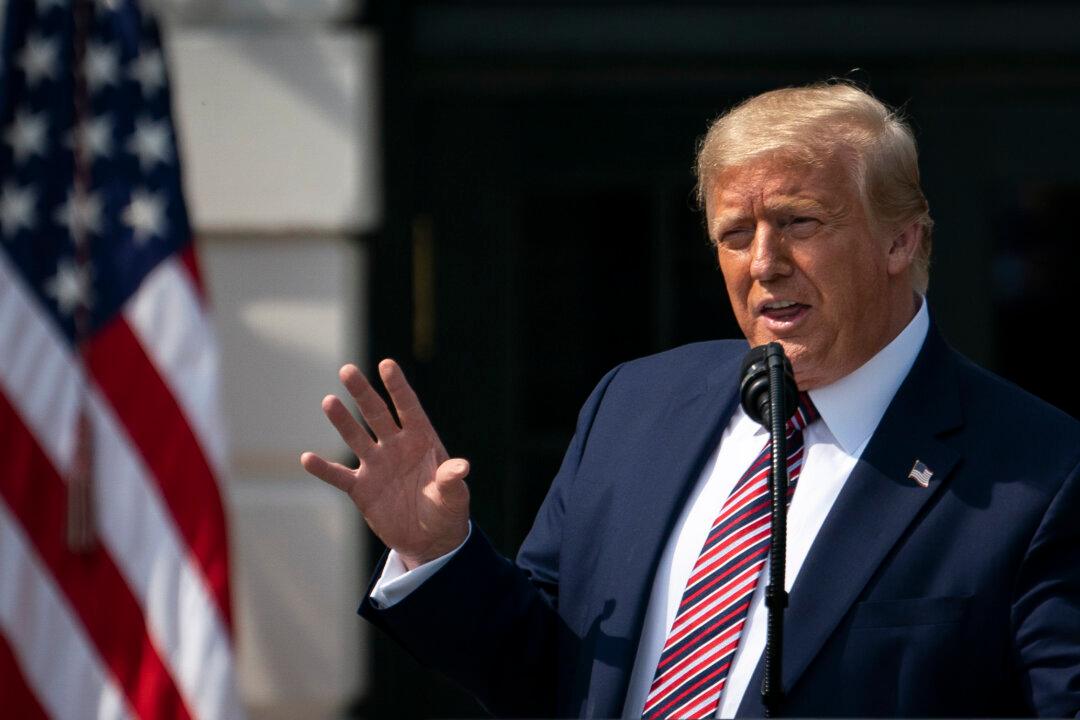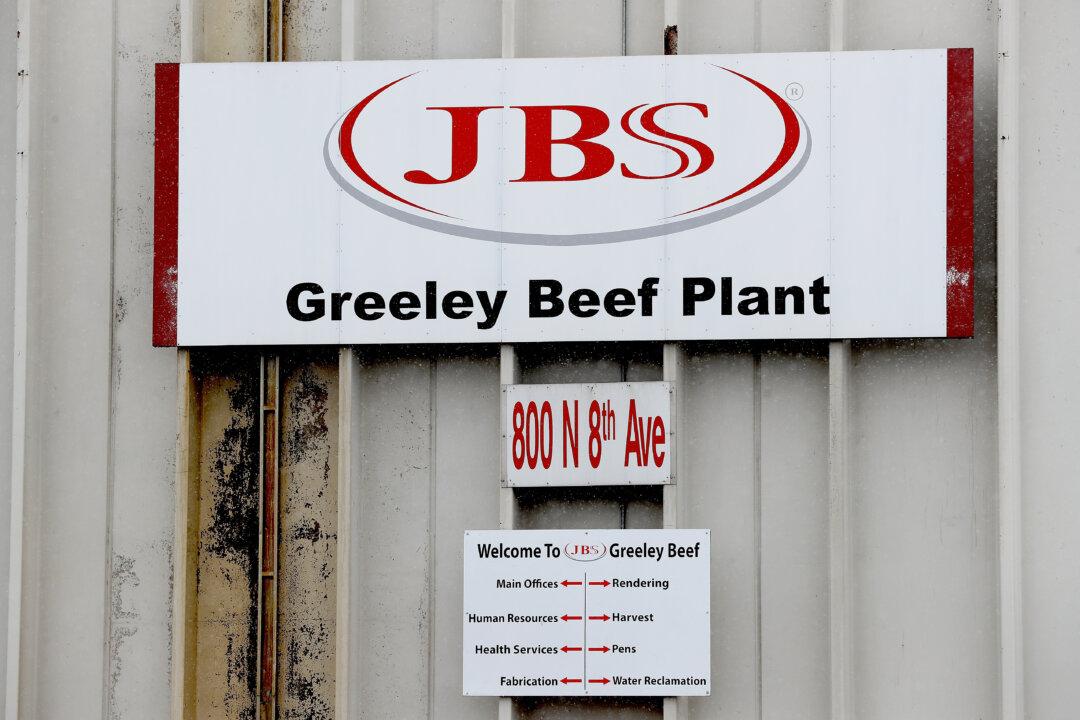President Donald Trump touted his administration’s record of rolling back regulations and cutting red tape in a speech on the White House south lawn Thursday.
Trump said that before he came into office, “American workers were smothered by a merciless avalanche of wasteful and expensive and intrusive federal regulation. These oppressive burdens and mandates were a stealth tax on our people, slashing take-home pay, suppressing innovation, surging the cost of goods and shipping millions of American jobs overseas.”





